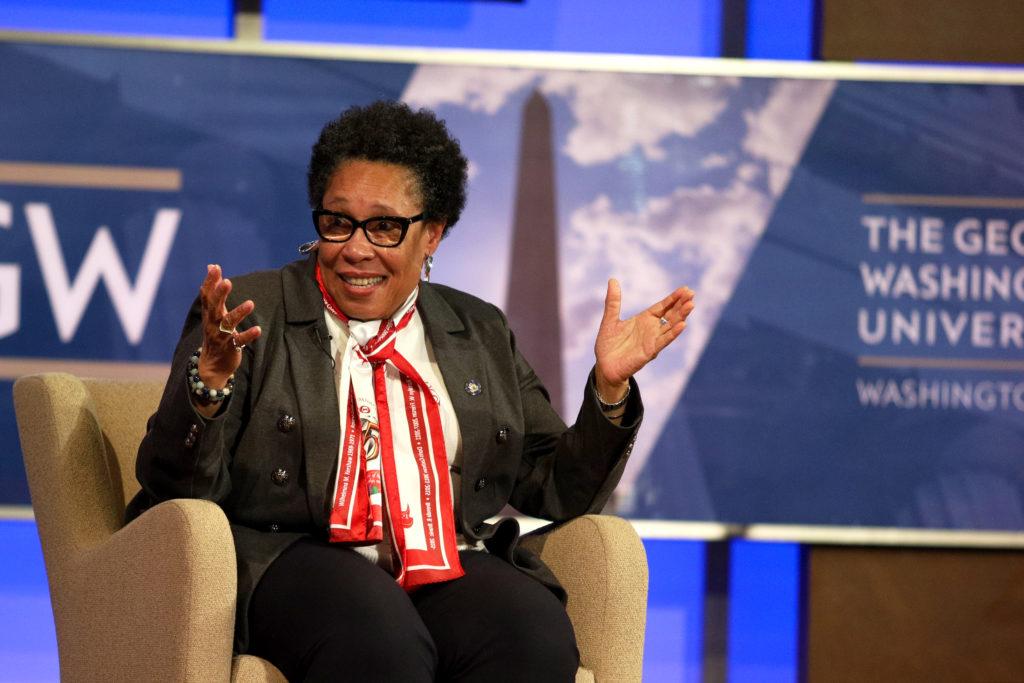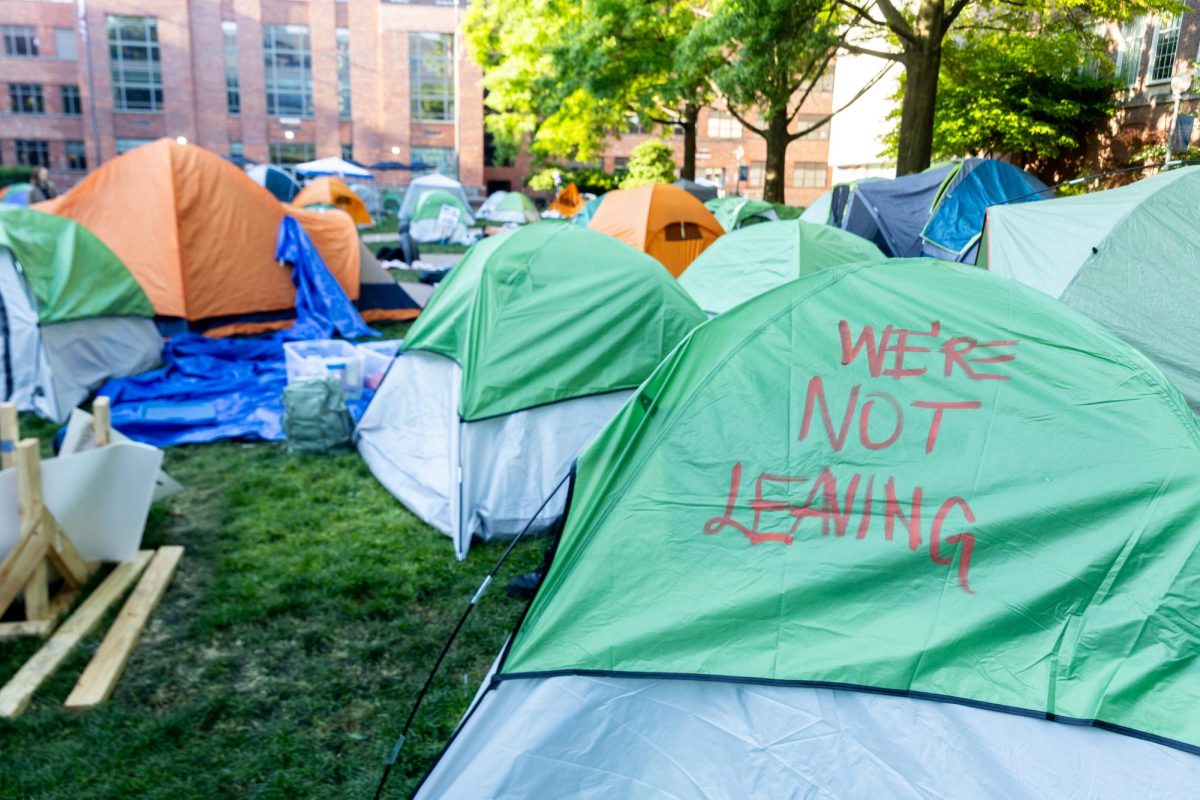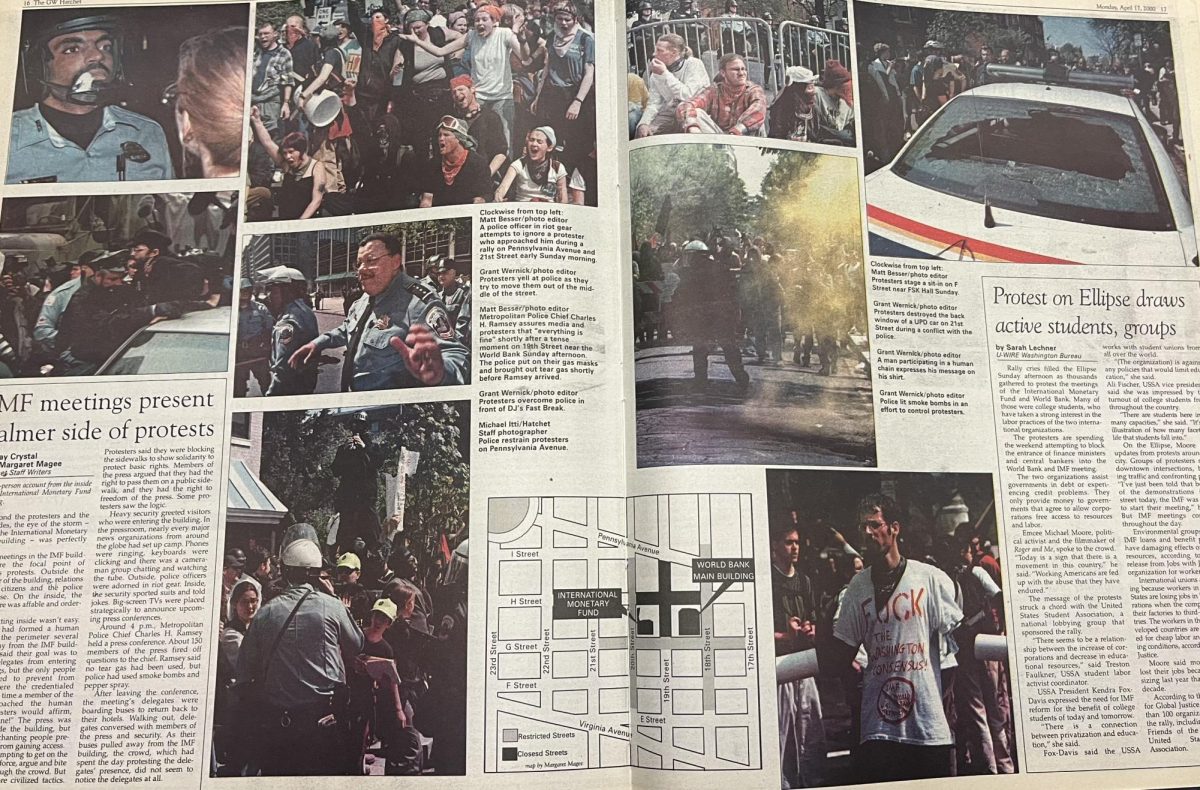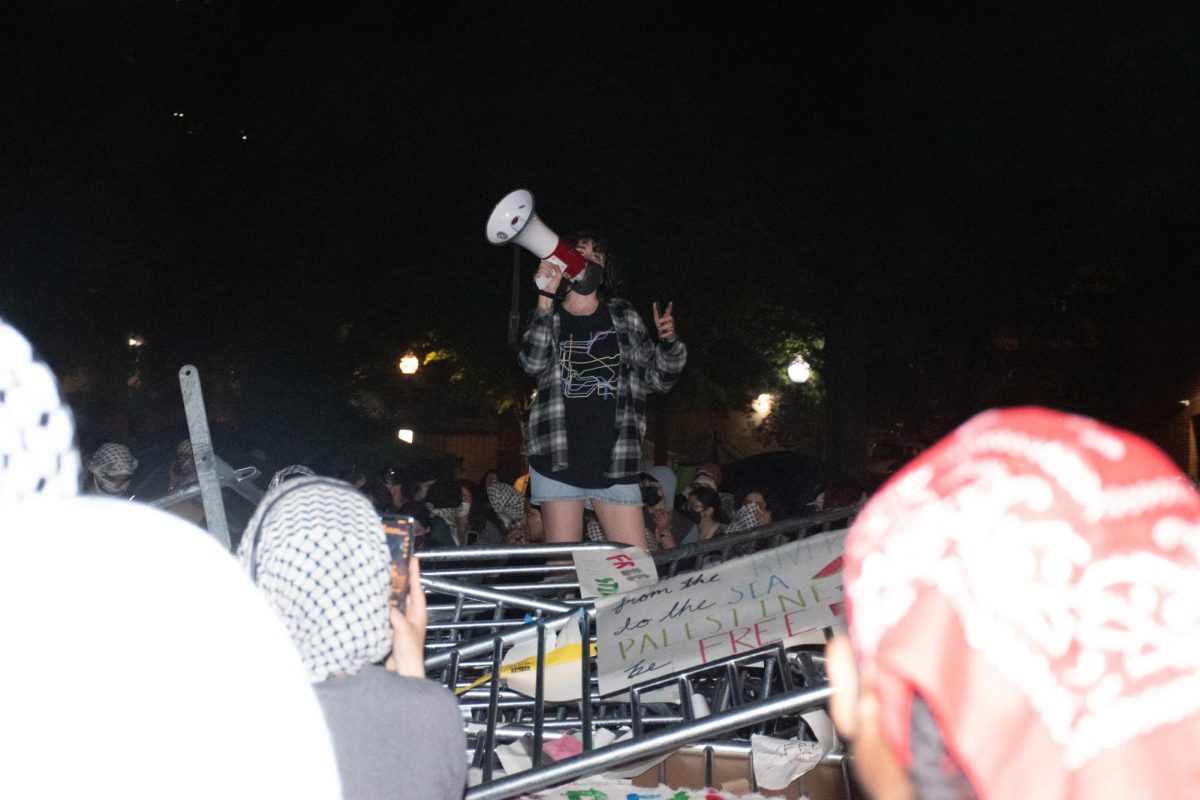Marcia Fudge, the U.S. secretary of housing and urban development, spoke about racial disparities in housing at the School of Media and Public Affairs Wednesday.
Fudge spoke to more than 50 students and faculty about the barriers preventing people of color from purchasing houses and how young people can combat discrimination and gentrification in areas where investments raise the standard of living in urban areas while displacing lower-income residents. The event was hosted by GW’s chapter of Delta Sigma Theta, a historically Black sorority of which Fudge served as national president in the late 1990s, and was moderated by senior Lauren Bordeaux, a member of GW’s chapter of DST.
Fudge said housing can influence the wealth and wellbeing of certain communities, and people of color often struggle to purchase property in affluent areas of the United States because of government and community planning restrictions. She said the barriers that people of color face when searching for housing are “by design” of homeowner’s associations and government bodies, citing methods of discrimination like zoning and redlining – a practice that has historically blocked people of color from moving into predominately white areas based on where they live.
“Some of those things have just been systematically baked into the system,” she said at the event. “So what we’re trying to do is reverse some of it, but it is institutionalized.”
Fudge said this kind of institutional discrimination is meant to bar Black residents from living in predominantly white communities. She said some community guidelines for purchasing properties are racially and economically discriminatory, including requirements for residents to build their homes out of expensive materials or purchasing large areas of land.
“All of those things create barriers for people to live in that neighborhood, but it is happening all over the country,” she said. “People say they want to help, but they don’t want it in their backyard.”
Fudge said she sees gentrification within her own neighborhood in Southwest D.C. She said as urban neighborhoods receive greater investment, housing prices also rise, making it challenging for low-income residents to live in areas that were once considered affordable.
The District was ranked as the most gentrified city in the United States in 2019 before falling to the 13th-most gentrified in 2020, according to a report by the National Community Reinvestment Coalition – a company aiming to end housing discrimination. The low-income population dropped by nearly 50 percent in some communities in Southeast and Southwest D.C. between 2000 and 2016 – among the most dramatic drops among U.S. cities, according to a second study published by the University of Minnesota Law School in 2019.
“Now I can’t afford to move out of my neighborhood because I can’t afford anything else,” she said. “Our property values have gone up so quickly. The tax base has gone up so quickly – that’s how gentrification happens.”
Fudge said although the pandemic halted housing construction, people are still looking to buy property that now costs more, making it more difficult for lower-income residents to afford to live in urban areas. She said the rising demand for housing combined with an increase in unemployment as a result of the pandemic made it more challenging for people of color to find stable homes.
“It’s just the world we live in,” she said. “COVID really has made it more difficult just because we don’t have the normal ebb and flow of a general economy. It just isn’t there.”
Fudge said some government policies do not consider environmental impacts that harm predominantly minority communities and drive racial and economic disparities in American cities. She said climate change affects communities of color most heavily because they are often located near dangerous areas like flood zones and do not have the financial resources to rebuild after an environmental disaster.
Natural disasters like flooding have a disproportionate effect on lower-income and minority neighborhoods because they have less green space to absorb water damage and fewer resources to repair infrastructure, according to a report by the National Academy of Sciences, Engineering and Medicine in 2019.
“We’re the people who live in communities where there is a plant that is polluting the air,” she said. “We’re the people who live in the flood zones, near the flood plains. We’re the people who live near the water. So look at Katrina and all of these other storms. We are more affected than any other group of people.”
Fudge said the next generation has a responsibility to address discriminatory government policies and advocate for their community. She said young adults are “the future” of what America will look like.
“When it was my time, I did my work,” she said. “It’s your time.”
Fudge said American citizens need to apply pressure to political leaders and prioritize housing as a policy issue to overcome disparities among Black-owned properties.
“It’s not a matter of what side of the aisle you sit on,” she said. “It is where we have to decide whether we want to live in a nation that takes care of its people, because if we don’t, I don’t know what kind of nation we would be.”








